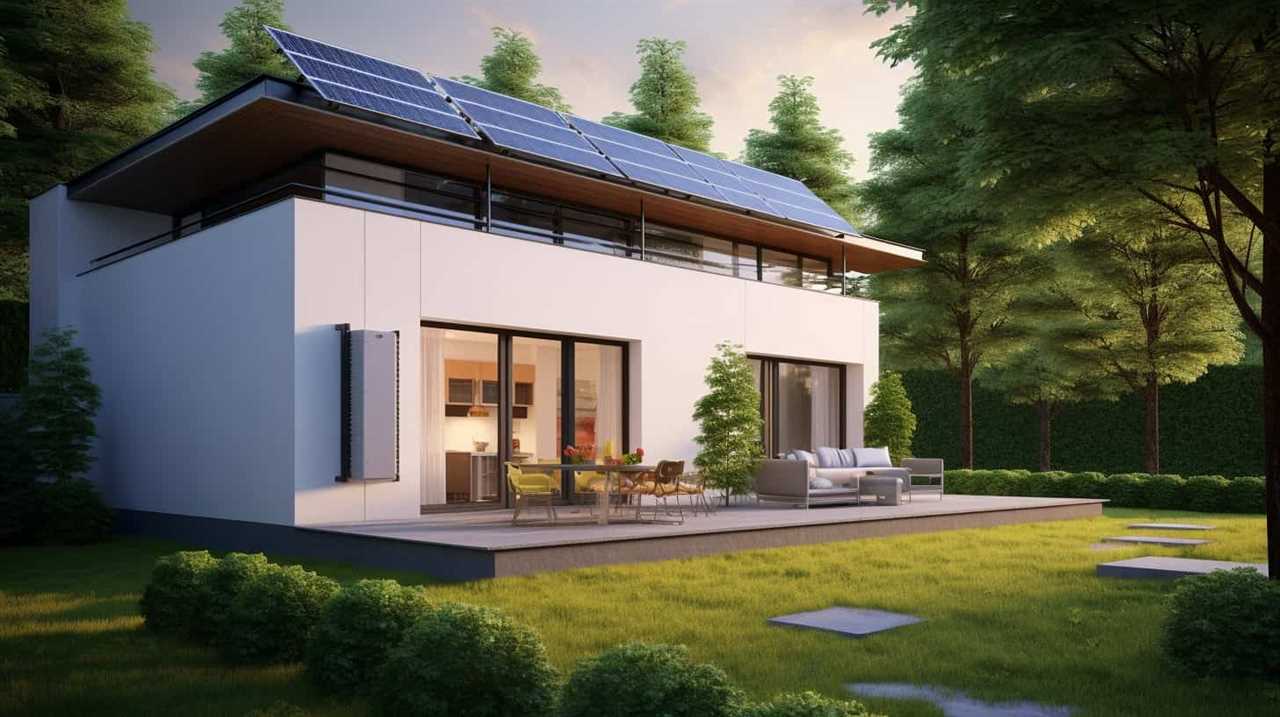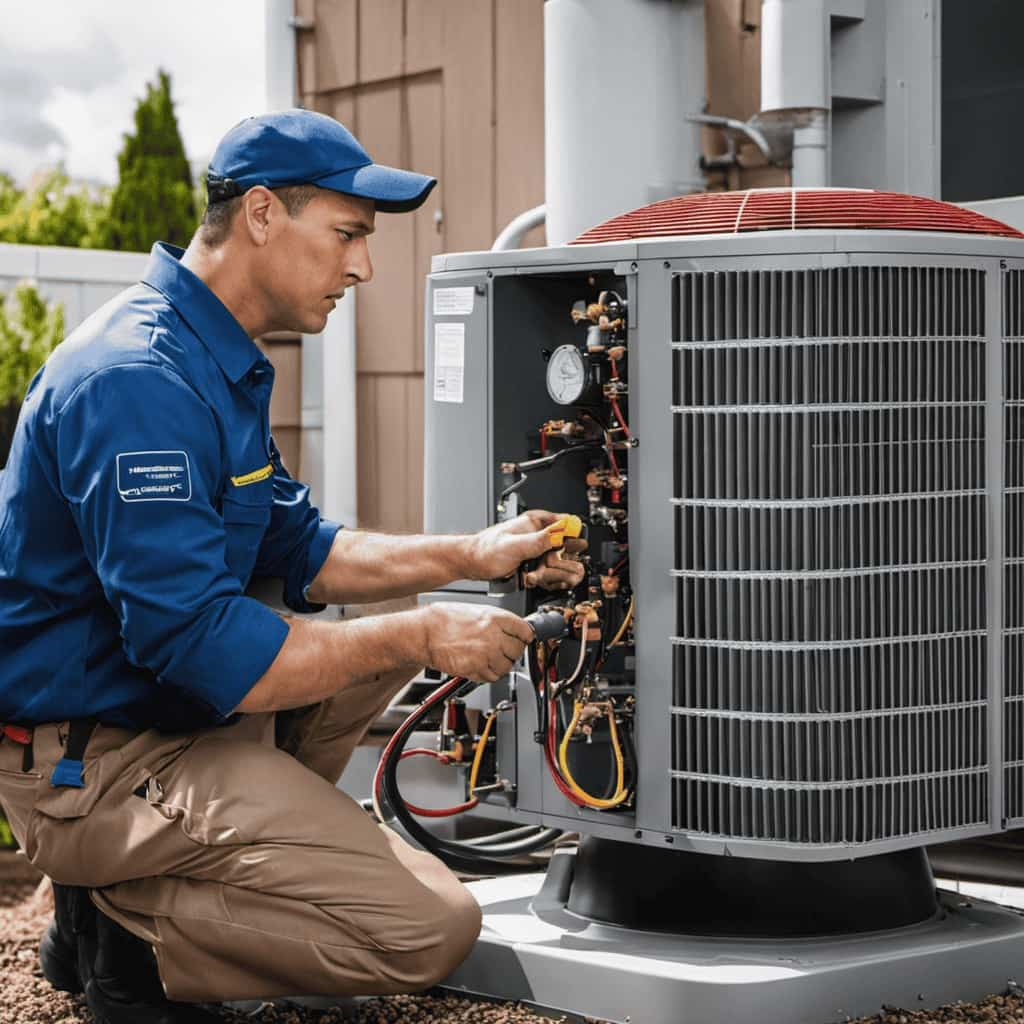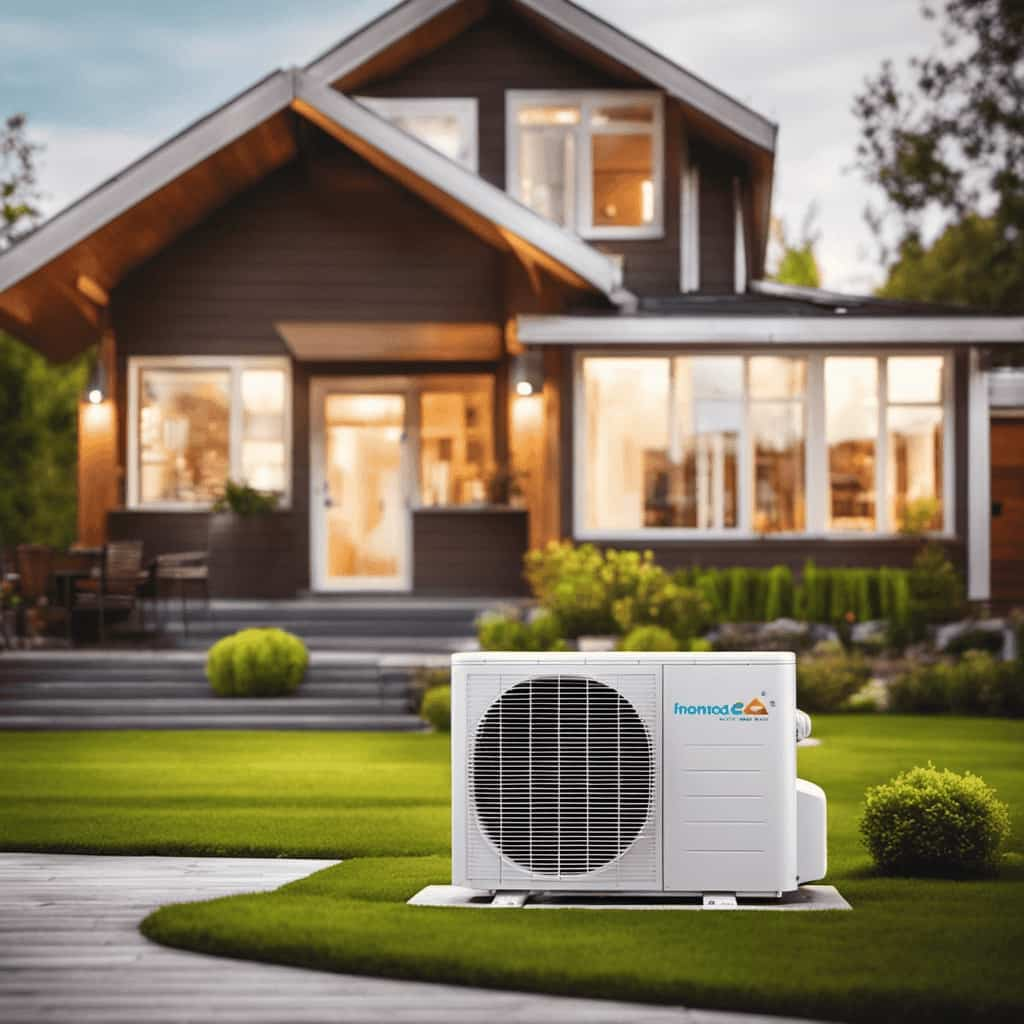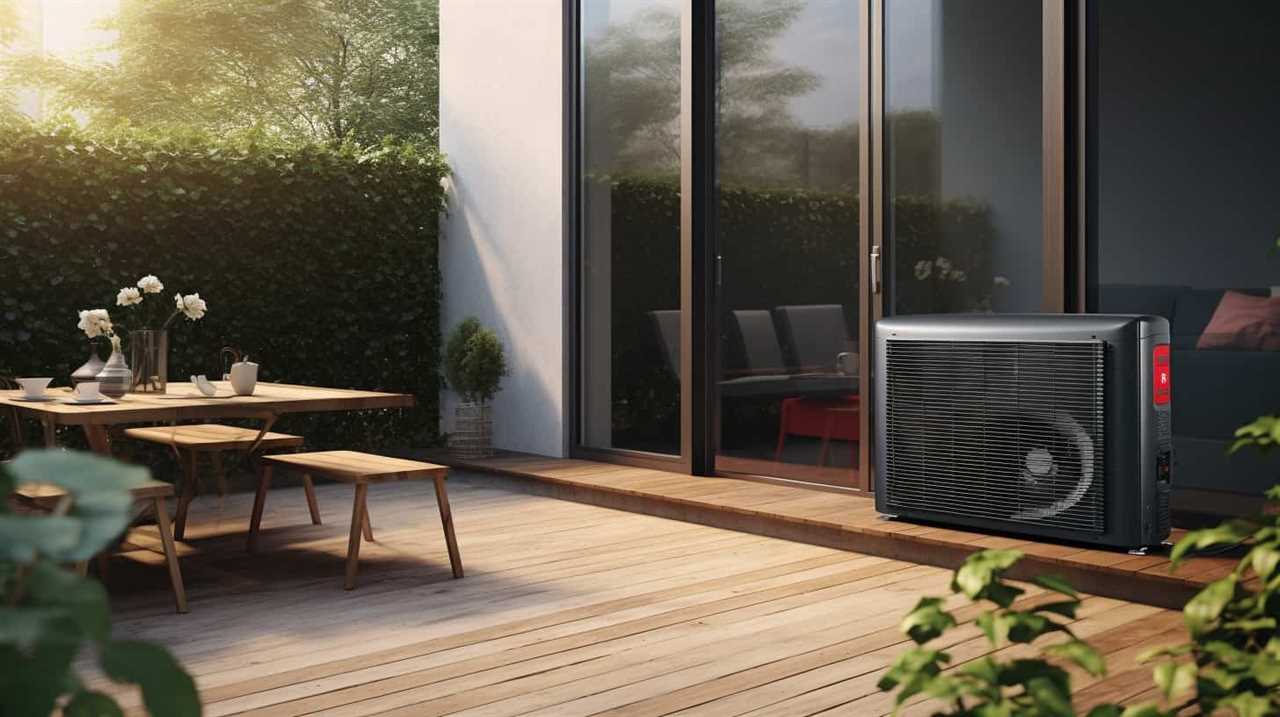Are you fed up with costly energy bills and inefficiency? We have the perfect solution for you.
In this article, we’ll show you how to master efficient energy use with heat pumps. These powerful devices can heat and cool your space while saving you money.
From understanding efficiency ratings to optimizing settings, we’ll cover it all.
Get ready to take control of your energy usage and enjoy the freedom of lower bills.

Let’s dive in!
Key Takeaways
- Proper sizing and installation of heat pumps is crucial for optimal performance and energy efficiency.
- Regular maintenance and cleaning of heat pumps are important for maximizing energy savings.
- HVAC technicians play a vital role in determining the optimal size of a heat pump for a specific space.
- Advanced energy-saving techniques such as variable-speed compressors and smart thermostats can further enhance the efficiency of heat pumps.
Understanding Heat Pump Efficiency Ratings
We believe understanding heat pump efficiency ratings is crucial for optimizing energy usage.
Heat pump technology has become increasingly popular due to its ability to provide both heating and cooling functions.
Efficiency ratings, such as the Seasonal Energy Efficiency Ratio (SEER) and the Heating Seasonal Performance Factor (HSPF), indicate how well a heat pump operates in different conditions.

These ratings are influenced by several factors affecting heat pump efficiency. One key factor is the temperature difference between the air outside and the desired temperature inside. The larger the difference, the harder the heat pump has to work, reducing its efficiency.
Another factor is the proper sizing and installation of the heat pump system. A correctly sized heat pump that’s installed correctly can ensure optimal performance and energy efficiency.
Understanding these ratings and factors will help homeowners choose the right heat pump for their needs and maximize energy savings.
Choosing the Right Heat Pump Size for Your Space
To determine the appropriate heat pump size for your space, consider factors such as the square footage, insulation, and climate conditions. Sizing considerations are crucial for efficient heat pump installation.

A heat pump that’s too small will struggle to heat or cool your space adequately, while a unit that’s too large will cycle on and off frequently, wasting energy and reducing its lifespan.
To find the right size, start by calculating the square footage of the area you want to heat or cool. Then, take into account the insulation level of your space and the climate conditions in your area.
A professional HVAC technician can help you determine the optimal heat pump size for your specific needs, ensuring maximum comfort and energy efficiency.
Optimizing Heat Pump Settings for Maximum Energy Savings
Our goal is to maximize energy savings by optimizing the settings of our heat pump.

To achieve this, it’s important to follow some heat pump maintenance tips and troubleshoot common heat pump issues.
First, regular maintenance is crucial for optimal performance. This includes cleaning or replacing air filters, checking and cleaning outdoor coils, and ensuring proper airflow.
Additionally, adjusting the thermostat settings can make a significant difference in energy savings. Lowering the temperature during colder months and raising it during warmer months can reduce energy consumption.
Another important step is to properly insulate and seal the ductwork to prevent air leakage.

Lastly, addressing common heat pump issues such as refrigerant leaks, faulty sensors, or electrical problems promptly will ensure efficient operation and maximum energy savings.
Maintaining and Cleaning Your Heat Pump Regularly
Regularly maintaining and cleaning your heat pump is essential for optimal performance and energy efficiency. Neglecting proper maintenance can lead to decreased efficiency and potentially costly repairs. Here are some important steps to follow when maintaining and cleaning your heat pump:
-
Check and replace air filters: Clogged filters restrict airflow, reducing the heat pump’s efficiency. Clean or replace filters every one to three months.
-
Clean the outdoor unit: Remove any debris, such as leaves or grass, from the outdoor unit regularly. Ensure that the unit is free from obstructions for proper airflow.

-
Inspect and clean coils: Dirty coils can reduce the heat pump’s efficiency. Clean the coils annually using a soft brush or vacuum cleaner.
-
Schedule professional maintenance: Regular professional inspections and maintenance can help identify and address any potential issues before they become major problems.
Exploring Advanced Energy-Saving Techniques for Heat Pumps
We can implement several advanced energy-saving techniques to maximize the efficiency of our heat pumps.
One technique is to use energy-efficient technology, such as variable-speed compressors and advanced controls. These technologies allow the heat pump to adjust its output based on the heating or cooling needs of the space, resulting in significant energy savings.

Another tip is to ensure proper heat pump installation. This includes correctly sizing the unit for the space, insulating ductwork, and sealing any air leaks. Proper installation ensures that the heat pump operates at its optimal efficiency, reducing energy waste.
Additionally, regular maintenance, such as cleaning the filters and coils, can also improve energy efficiency.
Frequently Asked Questions
What Are the Different Types of Heat Pumps Available in the Market?
There are different types of heat pumps available in the market, such as air source and ground source heat pumps. Air source heat pumps are more affordable and easier to install, but ground source heat pumps offer higher efficiency and lower operating costs.
Are Heat Pumps Suitable for Both Heating and Cooling Purposes?
Heat pumps are highly efficient, offering both heating and cooling benefits. We can optimize energy use by leveraging their dual functionality. This makes heat pumps a smart choice for those seeking efficient and versatile climate control solutions.

How Long Do Heat Pumps Typically Last?
Heat pump lifespan varies depending on factors such as maintenance, usage, and climate. On average, heat pumps can last between 10 to 15 years. Regular maintenance and proper usage can help maximize their longevity.
Can Heat Pumps Operate in Colder Climates With Low Temperatures?
Yes, heat pumps can operate in colder climates with low temperatures. Heat pump efficiency actually increases in cold weather, making them advantageous for heating in cold regions.
Do Heat Pumps Require Regular Servicing and Maintenance?
Yes, heat pumps do require regular servicing and maintenance. To ensure optimal performance and energy efficiency, it is important to conduct routine maintenance and follow heat pump troubleshooting tips. The benefits of regular maintenance include prolonging the lifespan of the heat pump and preventing costly breakdowns.
Conclusion
In conclusion, mastering efficient energy use with heat pumps is no small feat. By understanding efficiency ratings, choosing the right size, optimizing settings, and maintaining the pump regularly, we can make significant strides in conserving energy.

However, let’s not forget to explore advanced energy-saving techniques for heat pumps to truly unlock their full potential. It’s ironic that while heat pumps are designed to save energy, it takes a certain level of energy mastery to truly harness their efficiency.









